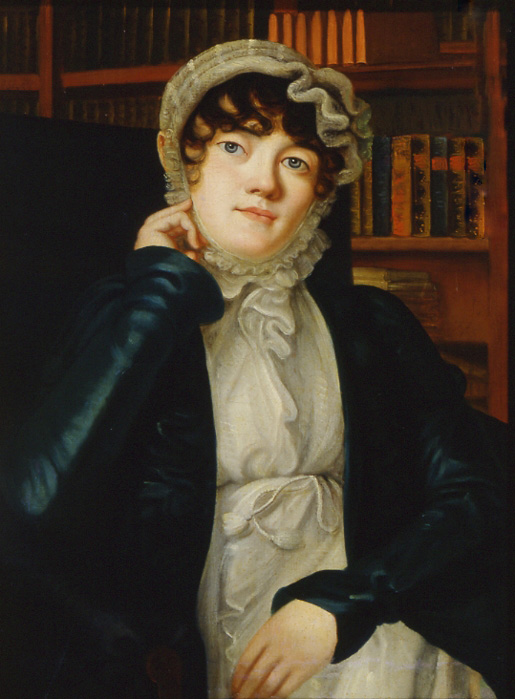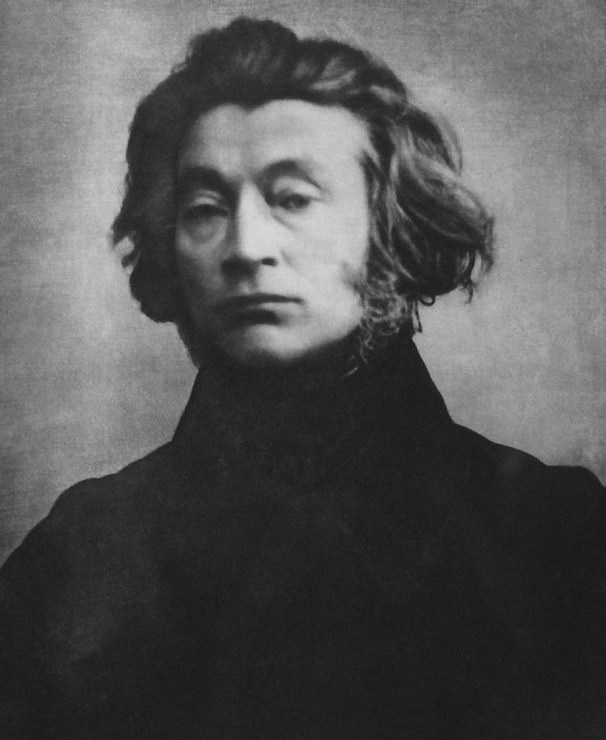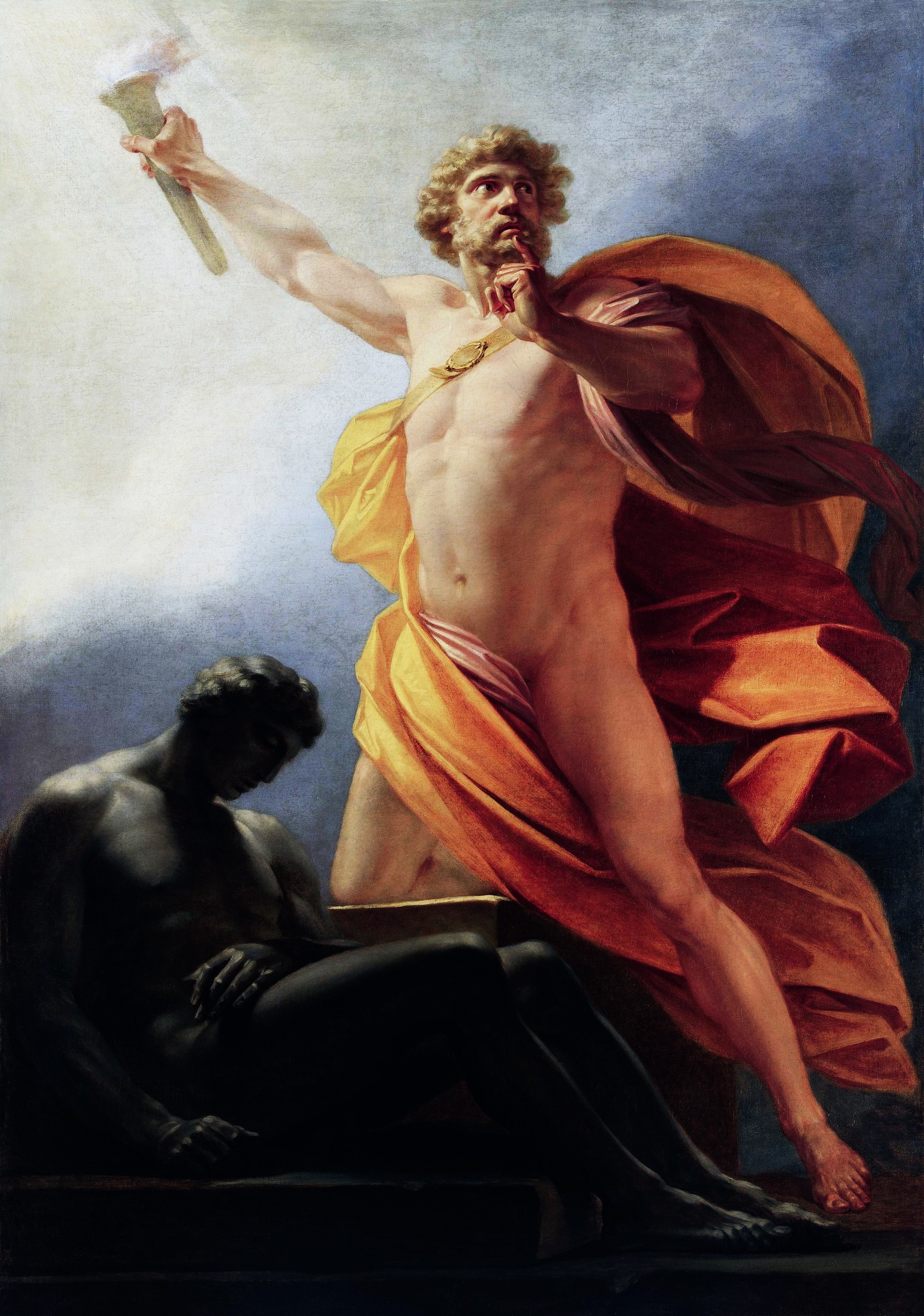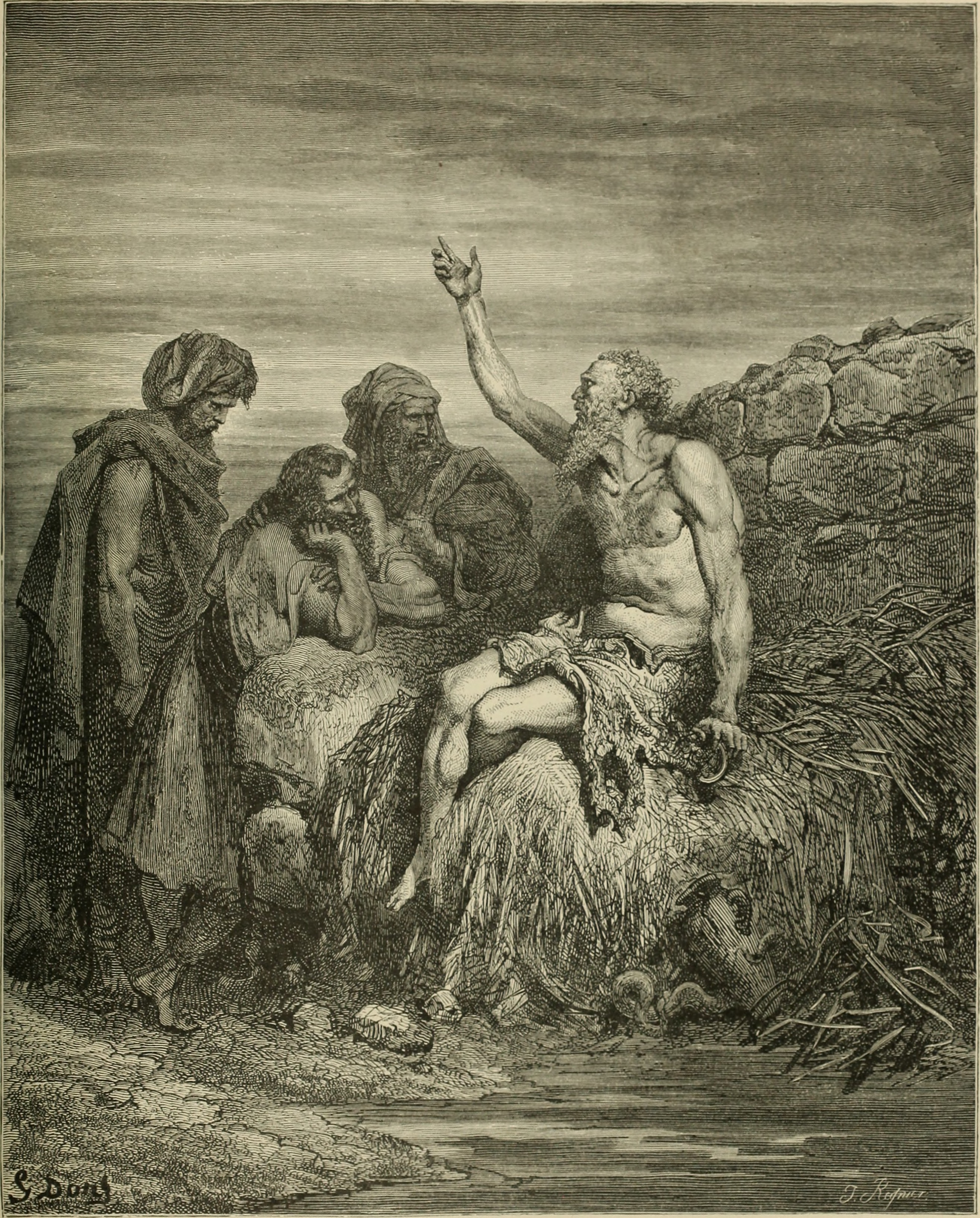Ask any Russian who their great 19th century women writers were and you’ll get little except confused looks. After discussing it with several Russian friends we decided to discount Nadezhda Teffi and Zinaida Gippius, both of whom really flourished in the early 20th century, leaving us with nobody at all. Russia had no George Sand, no Jane Austen, no Annette von Droste-Hülshoff. However, with the republication of Barbara Heldt’s translation of Karolina Pavlova’s A Double Life, alongside a new afterward by Daniel Green, the scene is set for Columbia University Press’s Russian Library to finally tell the Russians once and for all what they were unable to work out for themselves – that they had a great writer after all, and her name was Karolina Pavlova. A Double Life, her novel of 1848, is apparently her masterpiece.
When it appeared on my reading list, I was sceptical, to say the least. A Double Life is mentioned nowhere; there is no Russian edition published later than the days of the Soviet Union; it is impossible to buy it within Russia. But now that I’ve read it, I’m coming round. Pavlova is not a great writer of fiction, however much we might nobly wish that she were. (I’ve not read her poetry so can’t judge it). But nor is she talentless, shoehorned into my upcoming exams solely on the basis of her sex. A Double Life is an interesting book, it is an hilarious and tragic book, and most importantly it’s a valuable, eye-opening book. It may not stack up to Tolstoy, or Dostoevsky, or Gogol, but we shouldn’t hold that against Pavlova. Few of us, whatever our background or sex, can do that.

What follows is a summary of the plot of A Double Life, an overview of its main themes, and finally a brief look at Pavlova’s life.
A Double Life – Plot Summary
Our heroine is Cecily von Lindenborn, an 18-year-old girl who has only just entered society. Her life’s goal, as it was for most young women in those days, is to get herself a good husband. The man she’s settled on is the alluring and rich Prince Viktor. Cecily has been trained her whole life long to live and succeed within high society’s bounds, with the result that she cannot commit or conceive even a single “peccadillo”. She’s about as interesting as we all were at that age, which is to say that she scarcely has a personality at all. This may perhaps be jointly blamed on her upbringing and on her environment. Her closest friend, Olga, is even more dull than she is.
Although Cecily thinks she’s in charge of her fate, she is much mistaken. She is unwittingly a pawn in a much greater game, played between the adults of A Double Life – the men and the mothers – to ensure suitable matches are made. And Olga’s own mother, Madame Valitskaya, has her own plans in mind involving the prince. Soon enough, Cecily will learn just how little control she really has.
A Double Life is by the standards of the 19th century Russian novel, awfully short. There are ten chapters, in all, and their structure is the same throughout – a daytime, waking scene, focusing on the banalities of aristocratic life, is then followed by an introspective bedroom scene where our heroine is alone, and then finally a few pages of poetry as she falls asleep. This contrast between day and night as two different “lives” is suggested both by the title and by the epigraph from Byron at the beginning of A Double Life.
Conversation and Propriety
A Double Life is built on conversation. So much is obvious from the novel’s very first words, “But are they rich?” But this is not the speech of Dostoevsky or Tolstoy, that tortured desperate working out of questions like “what must I do?” and “how must I live?” In A Double Life there is not one moment where the dialogue serves to answer great questions. It’s purpose is the opposite – to suppress questioning, to control the tone, and to pass the time. People are incessantly talking, and Pavlova skilfully weaves her narration through different groups, giving us snatches at a time, which further lessen any chance of meaningful development of spoken ideas. What I noticed straight away was just how much blank space there was on the page. Pavlova’s characters are always uttering a few remarks, without expansion. They are simply filling the air.
“But are they rich?” Money, of course, is the most important thing for a young man or woman and the thing at the forefront of their minds. But not just money. People are obsessed with their appearance too. When mourning a dead woman, all Prince Viktor has to say is “She was not at all bad looking.” A Double Life’s world is a world in which people have forgotten how to express true feelings. Or rather, one where society forbids them too. When trying to assess Cecily as a match, one man says “I’ve never discussed anything with her except the weather and dances”. Later on, the narrator writes “How and by what means may one in an aristocratic drawing room distinguish the vulgar man from the brilliantly intelligent one? Surely only by the fact that the former usually seems more clever”. There is no way even to judge successfully.
The Language of A Double Life
Even if we cannot rely on people’s conversation as a source of truth, that doesn’t mean the spoken language of A Double Life is pointless. After all, it does show character. In addition to the vapidity of mourning, above, I was shocked and amused (a common feeling, reading this book), by the words of Dmitri, Prince Viktor’s competitor, when he tries to enlist the help of Olga’s mother: “I love Cecily Alexandrovna. I fell in love with her long ago”. This is a lie – he has “loved” her all of five pages. Vera Vladimirovna loses her daughter’s hand in an extremely distressing sequence in which Prince Viktor’s mother talks of a wonderful suitor, all without mentioning once that she is representing Dmitri and not Viktor himself. But Vera Vladimirovna cannot ask for clarification, because that would be beyond what is proper. Language is much more a straightjacket than a liberation here.
Outside of the dialogue, Pavlova’s language serves its purpose well – demonstrating the sheer soullessness of the world her characters inhabit. The word “nice”, is a common giveaway. For example, concerning Cecily’s talents she writes: “She sang very nicely and sketched very nicely as well”. Another word is “luxurious”, showing the materialism of the characters. This wonderful description of a summer residence demonstrates unequivocally how the aristocrats wish to be seen: “surrounding the luxurious cottage was a luxurious garden, its greenery always an excellent, a choice, or one might say an aristocratic greenery”. I also liked the comment that “nature made herself unnatural” – just as the characters must lose their nature to survive in society, so too must the landscape itself. Finally, Pavlova is quite like Austen in that she draws a distinction between native and foreign words. Frenchisms like “Comme il faut” all indicate society’s unnaturalness.
Boredom and Loneliness
If you are an aristocratic girl of 18 at the height of the Russian Empire, your options for enjoyment are rather limited. Unlike your male acquaintances you are unable to murder pawnbrokers, philosophise, or even go on a spree. The result is that everyone, knowingly or unknowingly, is awfully bored. As in Austen’s Emma, characters scheme and gossip away to pass the time. Even the talents they have, like Cecily’s singing, are limited in that they are only means to an end – securing an attractive husband. We are also made keenly aware of the lack of movement options for the women of A Double Life. Spatially, they are restricted to the drawing room and the bedroom. When Cecily finds a moment’s freedom on a horse, she is immediately stopped for going too fast – even the outdoors is no escape.
Cecily’s boredom is compounded by those around her. Olga, ostensibly her best friend, is amusingly banal. After a poetry reading Cecily turns to her:
“How fine that was,” said Cecily into Olga’s ear.
“Very good,” Olga replied, looking intently at someone through her lorgnette.
This is not the only example of a time where Olga immediately lowers the tone, preventing Cecily from expressing higher thoughts by depriving her of an interlocutor. At other times, Olga is simply a mouthpiece for her mother, manipulating Cecily so that she can secure the Prince for herself. And then class gets in the way of any other options. When Cecily is alone in her room with her old nanny, we are told that it means “in other words, completely alone”. With nobody to talk to it is no surprise that she is ultimately an undeveloped, boring, person.

Freedom’s Enemies – Mothers…
We may blame “society” for the restrictions on Cecily’s freedom, and certainly there are many unspoken rules that bind her. But there are also people who are to blame – mothers, and men. A Double Life sees Cecily’s problems not only as stemming from her environment, but also very much from her upbringing. At the heart of the novel is the question of why mothers, whose experience of the world cannot have been any better than that of their daughters, continue to bring them up just as they themselves were brought up.
“All these educators have been young once, and had been brought up in the same way! Were they really so satisfied with their own lives and with themselves that they are happy to renew the experience with their children?”
Cecily’s mother leaves her with “her mind in a corset”. Vera Vladimirovna fears “any development of imagination and inspiration, those eternal enemies of propriety”, so much that even Cecily’s dreams are controlled by her: “instead of dreaming of the Marquis Poza, of Egmont, of Lara and the like, [Cecily] could only dream of a splendid ball, a new gown, and the outdoor fete on the first of May.” At no point do mother and daughter seriously talk. Cecily has no emotional support anywhere. I thought this line, from the first chapter, was particularly telling: “A child needs an English nurse more than a mother”. That is to say, that propriety and outward appearance is considered more important than actually nurturing the child. Instead, Vera Vladimirovna sees her role as guiding Cecily to the right husband, with lines like this: “a virtuous wife can completely reform a flighty husband”. Hardly emotional support.
…And Men
Next to the mothers, the men are not nearly so bad. However, I don’t wish to absolve us of guilt. The two main male characters are Dmitri and Prince Viktor, and both of them are equally faulty. Dmitri is a gambler, a self-centred lout. He only comes to “love” Cecily when he hears she might get a big inheritance. When he imagines her after that he thinks she is someone “who could make a husband very happy”. He does not once think of her own happiness. Dmitri is also a master of using society’s rules to his benefit. After Cecily’s brief burst of freedom galloping on horseback everyone wants to keep a watchful eye on her. Dmitri comes up and says “let me ride beside you. The last time you frightened me”. A horrible, stomach churning moment, precisely because she cannot say no.
Prince Viktor is not so bad. He breaks the rules more often, but Vera Vladimirovna is willing to make an exception for him because he’s rich. Around him Olga’s mother schemes so that he will marry Olga, however at the end of A Double Life he declares that he is going to go to Paris. It is a significant point. However talented the machinations of the mothers may be, the men of the novel still have the ultimate freedom because it is they who make the proposals. If Prince Viktor is disappointed that he’s missed out on Cecily, then he can go to Paris if he wants. As a man, nobody controls him.
The Poet and The Double Life
But there is one man in A Double Life who is controlled by others, just as the women are. In the third chapter there is a poetry recital by a young poet, who performs his rendition of Schiller’s “The Bell”. Immediately he comes under attack by one of the audience members. “We demand action,” he says. “Poetry should be useful; it should hold vice up to shame or set a crown on virtue”. The poet, surrounded by important aristocrats, is unable to defend himself. Like the women, his environment determines his identity even as his heart wishes to rebel in the name of higher feelings. Cecily is not a poet, but during A Double Life she begins moving down a path towards becoming one. Though she has been made to understand that being a woman poet is “the most pitiable, abnormal condition”, every night she hears poetry in her dreams.
This is the voice of her muse, at least I take it to be so. It comes as a warning, trying to warn Cecily before it’s too late both that society is not all there is to life, and that her “love”, when it comes, is not all it seems to be. The poems are translated without rhyme, focusing on the images. They were quite repetitive, filled with the usual chains and repressive bits and pieces. The speaker in them is a “he”, which adds a nice sense of reflection. In her poetic night-time double life Dmitri has another rival, but Cecily is not able to see that man’s worth until it is too late. The tone becomes one of resignation. “You will understand earthly reality / With a maturing soul: / You will buy a dear blessing / At a dear price.” Cecily will suffer, but she will learn.
At the end of A Double Life Cecily speaks for the first time a snippet from one of her poems. Olga calls it nonsense, and Cecily for her part refuses to claim it, saying she simply heard it somewhere. But that night there’s a change in the poems, and for the first time the voice is in the first person. Speaking of her poetry, it says: “Long had it lived mid worldly noise, / Free and bright within me”. Even as Cecily’s external world has suddenly grown constricted her internal world has reached a new level of freedom. For the narrator, who seems like an older, wiser woman, A Double Life’s plot is marked with a melancholy inevitability. “What maidenly soul does not understand the charm of these slight transgressions?” The narrator asks of Cecily’s first deluded moments in love.
For Cecily is only one of many women who were trapped within their society, and near the end of A Double Life she realises this in a moment of revelation.“And she felt and knew that everything going on now had definitely already happened to her once, that this moment was a repetition of something in her past and that she had already lived through it once before”. Cecily is in that moment all women, and it is here that A Double Life stakes its claim on universality. Just as Pavlova wrote a book to give knowledge of aristocratic women’s plight to the world, so too, do we feel, one day will Cecily. But before that time much suffering awaits. A Double Life marks the end of one of Cecily’s lives, but it also marks the birth of another. But that life is for another story, and Pavlova never wrote it – she lived it.
Karolina Pavlova and Her Critics
Reading about Karolina Pavlova’s life is not fun. The Introduction and Afterward give ample evidence to support the view that Pavlova was treated horrendously by the men of the world she inhabited. And, indeed, by the women too. In spite of her impeccable literary credentials – she rubbed shoulders with all of the major Russian writers of the period, including Pushkin, Lermontov, Gogol, and others – she found herself insulted by many of the critics of the day, and constantly demeaned. As a man, much of this makes for uncomfortable reading. An anonymous critic writes of his experience reading: “I suddenly had my doubts and looked again at the book’s title page to make certain – “did I not make a mistake? – was it really written by a woman? I had somehow thought that only men could be so sharp”. Reading this I wanted both to laugh and cry.

But for Pavlova, there were only tears. Born Jaenisch in Yaroslavl in 1807 to a German professor, she was forced, a few years after the publication of A Double Life, to flee Russia to Dresden, where she lived for four decades in poverty, cut off from her home. At every turn she made enemies, such as when she initiated (perfectly justified) criminal proceedings against her husband for wasting all of her inheritance on gambling. Her dedication to her poetry made her an outsider – as a woman she was supposed to be raising children. Only Aleksei Tolstoy, himself a minor poet, was of any real literary support in her later years. When she died in 1893 she was already forgotten, waiting for the Silver Age poets to rediscover her poetry, and then critics like Barbara Heldt to rediscover her prose.
Conclusion
To say that Pavlova lived in a hostile environment would be a horrible understatement. Everyone, everything, men and women alike, conspired to insult and humiliate her and denigrate her poetic calling. Though she attempted to be stoical, no amount of character will let you withstand such hostility forever. I cannot fault her character, and I was truly shocked at her treatment. But heroism in life alone does not make for a good book.
A Double Life is not a great novel, Russian or otherwise. It has a number of faults that are simply impossible to look past. Its characters are poorly drawn, both the men and the women; the heroine is boring; the poetry’s repetitive; and the arguments are rarely subtle. In spite of this, you should definitely read it. It’s short, and it’s fascinating to see the world of ballrooms from a different perspective, even if Pavlova has an axe to grind. Pavlova is no Jane Austen – she lacks the subtlety of her characterisation and irony. But she is by no means talentless. A Double Life is at its best when it’s comic and satirical, rather than when it attempts loftiness. I really did laugh out loud at several moments.
Many diamonds in the rough can slip through literary history unnoticed, but rarely do truly polished ones. Ultimately, A Double Life is just the former, not the latter. So read it, but keep your expectations tempered, and you’ll no doubt enjoy it a lot.






